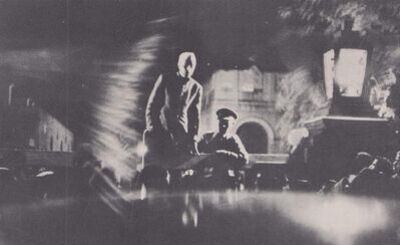
Four poems by the Austrian-American writer and spoken word artist, who lives in Berlin
Ode to Sommersprossen
Sommersprossen. Lieblich —
German ribbons into eardrums, like a finger
circles around a thumb, like a tongue
licking salt from the glass.
Not a beautiful language! I disagree.
German children sound like school bells
with their fluttering enthusiasm, teak melodies,
crystal high notes.
German is something between metal
and driftwood, strict but irregular, and porous
if you allow your eyes and ears and mouth
to approach. If you don’t understand this
how can we begin to move forward?
And how will I bear to move out,
to let this language, my second brain,
atrophy and die. No Späti, Schatz nor
Stein. Barzahlen. Glückwünsche.
There will be nights in England and America,
when I am asked to speak, bring the accent out
to trot along the garden path.
What an unusual language. What an ugly skill.
What a big forehead you have.
How boring, how limited, this English —
not my mother’s tongue, nor my fathers —
but the one pressed down to them. They
held out open, sweaty hands. Berlin geboren.
There’s no good word for WG, wackelig or Schade.
Schaden, I will miss your shades on my lips
and your crackling in my throat. I will
try to be both, but miss being beide,
I will forget how.
I will forget the unterricht, German for losers.
Schade, for fear is not the reason to stay —
it is often the sign to go. So jetzt: Hüpf, draußen,
mit deinen schönen sommersprossen!
Wherever zuhause, you will always be home.
Sommersprossen: freckles
Lieblich: lovely, term of endearment
Späti: liquor store, short for Spätkauf or “selling late”
Schatz: sweety, term of endearment
Stein: traditional stone beer mug
Barzahlen: pay by cash
Glückwünsche: congratulations
Berlin geboren: born in Berlin, like the author’s Opa
WG: an apartment shared by roommates, short for “Wohngemeinschaft”
Wackelig: shaky, wobbly, loose, often used to describe an unsteady connection
Schade: That’s a shame
Schaden: to damage
Beide: both
Unterricht: lessons, teachings
Jetzt: Hüpf, draußen, mit deinen schönen sommersprossen! - Now: Hop, outside, with your beautiful freckles!
Zuhause: at home
Ex at the Museum
I don’t pay much attention to the art
though I like the foggy Richter paintings
and Vija Celmin’s comb —
I think she should have kept making combs —
and the spiders and the Calders,
obvious as they may be.
I cannot overcome the distance between us,
as we move through the airy tomb.
Something bobs around our heads:
a history of loving you, and being loved by you.
A tour group enters. My favorite Caldersways,
swirling shadows on your watchful face.
Ten Years Ago He Yelled Out My Name
A field trip to the local college brings
every high school student in the desert
to the same coordinates, on the same
blistering end-of-summer day. I,
sixteen, still unsure if he loves me, walk
narrow alleys formed by school buses,
blonde hair and white skirt pinned between
black asphalt, cloudless sky —
and he, sure about something, pops
his shaggy head out the bus window,
yells out my name. I smile up like an
apple hand-picked by the sun, beaming.
Towards the end he says we should meet
once every ten years, but I’m not sure
at what point to start counting.
He’s been replaced many times over,
though this summer I found him again:
He had a new voice, a new shape,
and flawless new skin, but the same
impossible needs: love me, cherish me,
let me vanish, to dust, to float, to drift.
I can only give you so much and stay free.
I think love is a many-headed beast
waiting to fool you into trying again,
lurking under bridges, in film canisters,
at the post office, on benches, cigarettes
drooping from his glossy mouth.
He’s looking through glass
for you, brushing his hair back for you,
an eye on the street and clock ticking down
for precisely the moment to yell out.
I Know How to Love
I.
I want to bring you something
on this, the final date, to mark
my appreciation, give thanks,
say bye. Perhaps an old magazine
on cinema you were interested in,
or another book on writing stories.
In the kitchen there are Germini
flowers I could un-vase and
carry dripping up the street.
There are grapes in the bowl.
Below the bright and bitter
skins, the flesh is soft, grey,
sloppy. I thought about Guinness
in a can, but it doesn’t taste the same.
I think about bringing you this poem.
It won’t taste like me.
II.
On my way home, I witness
a parting embrace:his ear to
her cheek, her free arm
dragged down heavily by the bag,
a mammoth of canvas prepared
for adventure aheadand apart.
I move past and they hold on
as if enchanted, the wind whirling
dust and pollen fluff into the
sweaty faces of all the Sunday
ice cream eaters, their children,
their little dogs on red leads,
and mine, sweatier than the rest.
Blood pools in my sore nose,
and I squint as if this would be enough
to persuade the tears to stop.
More from The Byword
Comments
*Comments will be moderated











